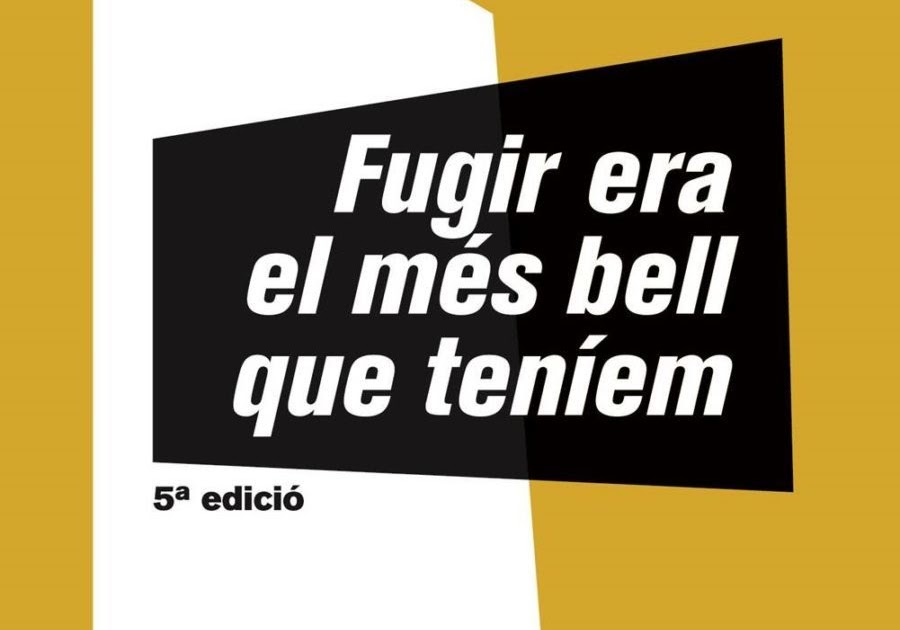
Original Language: Catalán
Títutulu Original: Running away is the most beautiful we had
Translation: Castilian translation of the author herself for Galaxia Gutenberg
Year of publication: 2019
Valoración: highly recommended
Like every good lover to read (and will have repeatedly experienced), sometimes it happens that there are books that you want to read and that one has on their shelves but that, for unknown reasons, they do not find the time to be read. In that mysterious black hole in which forgotten books are, sometimes there are jewels that have to wait for the existence of a certain drought of options for one to decide to take them. And on many occasions doing it is a success and the decision is worth it. This book is a clear example of this.
The author’s style is very elegant, with a worked language in which care in the choice of words and the ease of narration is noted. The text flows with harmonic loudness, with the musicality of those who love the words and who finds in them the warmth of a nostalgia full of memories and shortcomings. Some deficiencies also suffered, on horseback between his native Barcelona and France, with absences and offenses on both sides and especially painful that of his homeland, because «in Barcelona you always erras, you and so many other people who did not have (… ) the resources of a collaborating bourgeoisie with Franco. A father from an already wandering family because the paternal grandfather also fled 1928 because “the employer threatened the workers who, like him, were deeply involved in anarchist union struggles,” leaving the rest of the family In Barcelona. The exiles, who break families and empty memories.
In this way the author explains the story of her father (through the memoirs she wrote at seventy years) since she was a child to already adult and links him with her vision of those events being a child, rebuilding from history the history Landscape of his life marked by having to leave his land and with it part of his memories. Similarly, the author traces a parallel between her father’s exile to Béziers and his in Toront A statute of truth to desire. That little visual cartography that started in a attic and that had to reach a study by Toronto ». Already in 2011 he moved to France, “the country of my family, that of my childhood holidays”, thus linking his life with that of his family, a life marked by war in all of them, as well as in his own Author, victim of the wars that have hit and banished to her family and that since child adults explain them the feel vulnerable ». Also, speaking of memory, the author fine spins and accurates her language by successfully stating that «it seems to me that no one has still filmed the empty spaces of the Europe of 1945. nor the way it has been covered, as the one who fill out an animal Dead, what was destroyed. It is very likely that this is the reason why, in Europe, when we refer to the past of the extermination and war fields, we talk about horror, and very rarely of vertigo. Horror makes us look away; Only who dares look feels vertigo of the past ».
Combining reflections with specific mentions to other authors such as Jünger, Freud, Benjamin or Roland, the author tells us about the war and its causes, its defenders and what is in a book that overflows nostalgia in each of its pages, a nostalgia That comes from the transmission of memory, of the memories narrated by a father and that wake up and appear when the narrator moved to the lands that housed her childhood by affirming that “I contemplate this landscape that is drawn as the coach advances and I paint it With the transparent and anachronistic veil of some memories that you have left me in inheritance (…) I remember sitting in the kitchen, or at the dining room table, while you counted your summers here, and now your words overlap the present landscape ». A look reflex of a life that passes before his eyes and stops, permanently, in each of those moments.
Source: https://unlibroaldia.blogspot.com/2025/02/marta-marin-domine-huir-fue-lo-mas.html


